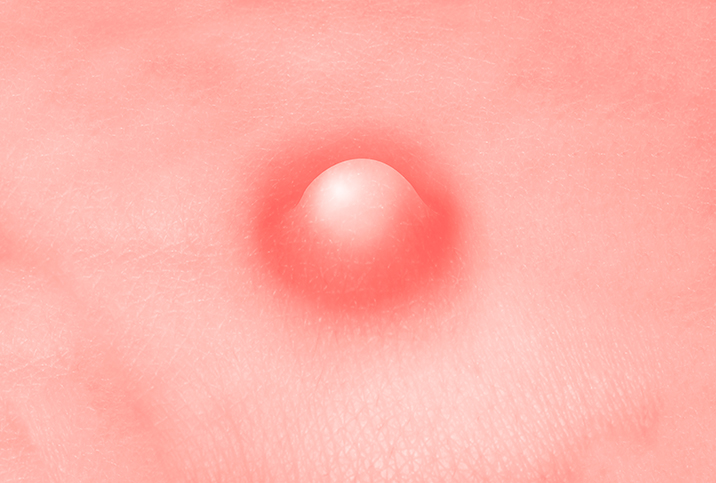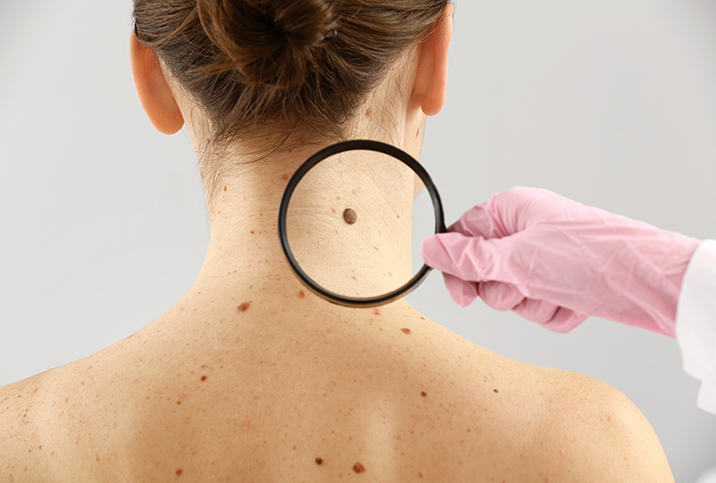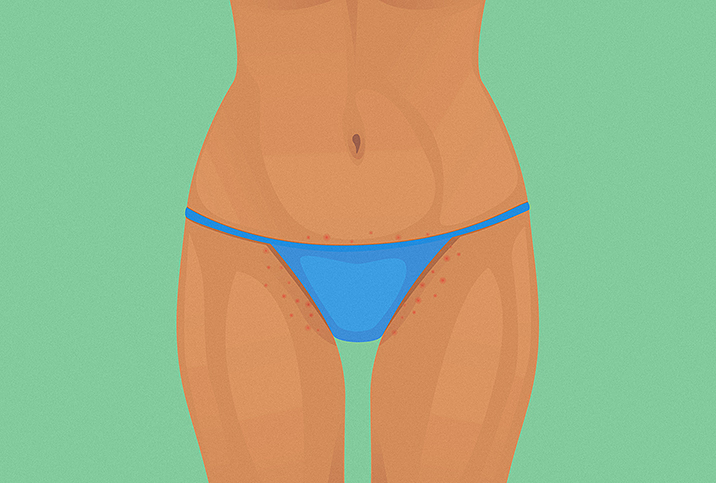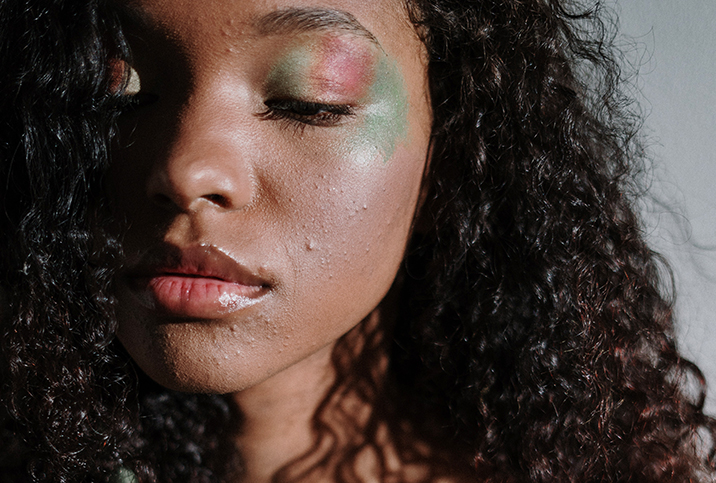Recurring, Painful Boils Could Be Hidradenitis Suppurativa

Nobody likes to talk about boils, especially those found in your armpits, groin, buttocks, beneath your breasts and in other folds of skin, and especially when those boils turn into abscesses. The locations of this disfiguring skin condition might be why patients suffering from hidradenitis suppurativa (HS) often don't seek medical help in the early stages.
The physical impacts of HS—severe pain, leaking pus and thick scarring to name a few—are significant enough, but the psychological impact shouldn't be dismissed. Patients with HS suffer from severe stigma and are prone to develop depression and anxiety due to their low self-image.
Hidradenitis suppurativa, explained
"HS is a condition that affects about 1 percent of the population, where the hair follicles and sweat glands become blocked, resulting in inflammation that causes them to become abscessed," explained Thuva Amuthan, M.B.B.S, a London-based general practitioner specializing in dermatology at his practice, Dr. Derme. "The sebum doesn't get released and it becomes a lump."
These lumps appear in the armpits most commonly, but are also found around the groin, bottom and beneath breasts or skin folds. The severity of hidradenitis suppurativa differs; in later stages, Amuthan described the presence of tunneling and tracks under the skin which form and "feed" each of the boils with pus.
For Dublin-based Suzanne Moloney, who created a clothing line for wound dressing specific to HS, it took over 10 years to get a correct diagnosis. She was misdiagnosed multiple times, including once when she was told she had a sexually transmitted disease (STD), with some diagnoses requiring surgery with weeks of recovery, only for the HS to come back.
Treatment for HS
Unfortunately, hidradenitis suppurativa cannot be cured, but it can be managed. Amuthan recommended developing a strict regimen of washing with antibacterial solutions and regular antibiotic courses to keep the condition under control. If the condition continues to worsen, it is time to see a dermatological specialist who can prescribe stronger antibiotics.
"We use close monitoring and regular blood tests until we get a good maintenance routine," Amuthan said. "I also do special laser treatment to kill off the bacteria as well as treat the inflammation."
Moloney's HS is currently well-controlled.
"I am now relatively pain-free, except during flare-ups, and I still get fatigued, but my treatment plan is working for me and I feel mostly in control of the disease," Moloney said. "That said, it would be a dream to have a treatment plan developed that would work for everyone with HS."
Psychological effects of hidradenitis suppurativa
Amuthan believes that HS scarring can have a significant psychological impact, especially since its treatment is considered cosmetic, thus, the cost isn't covered by many medical providers. He also sees patients suffer from the mental toll of chronic illness. Moloney understands this all too well.
"You get your hopes up and, unfortunately, the disease usually comes back," she said. "I've even had lesions forming in surgical sites and it just dashes your hope of some respite. It's relentless and it's hard to stay optimistic and positive."
Severe scarring can also impact the sex lives of people suffering from HS.
"I've had so many surgeries around my genitals," Moloney said. "It's an extra layer of awkwardness and complexity where I have to explain to my partner where they can't touch me, what the scars are from."
She added that inadequate wound care impacts her mental health as much as the condition itself.
"You worry about leaking onto your clothes, leaving stains on furniture, the smell, wondering if a dressing will fall off," Moloney said.
People suffering from conditions such as HS tend to isolate themselves due to feelings of low self-worth, explained Ryan Cooper, M.Sc., a clinical psychologist in Johannesburg.
"Their confidence is hindered because of embarrassment, social stigmatization and even sexual distress," Cooper said. "This can affect quality of life and lead to depression and anxiety."
Communicate about your pain
Moloney believes it is vital to vocalize the extent of your suffering instead of keeping quiet.
"Now, I tell people how unwell I am instead of trying to be brave. When you are open with people, they want to support you," she said.
Moloney also recommended support groups, and Cooper agreed.
"It can be a place where people feel understood, supported, comforted. They can share freely and not feel judged," Cooper said.
Cooper emphasized the importance of seeking some type of support, but patients should also ensure that they are getting enough rest, eating well and getting outside for fresh air, as well as incorporating mindfulness, meditation and yoga programs to manage mental health.
"They can look at cognitive behavioral therapy and various supportive therapies to assist in developing self-confidence," Cooper added.
Why HS is so unknown
"HS is not a condition that's common enough to be taught in the [general practitioner] curriculum, but most experienced GPs are aware of this condition," Amuthan said, recommending that medical professionals look into the Primary Care Dermatology Society (PCDS) in the United Kingdom. "They've got very useful resources for GPs. HS is not a condition that's commonly seen or paid attention to by the media or cosmeceutical companies. We can do more for it."
If you suspect you have hidradenitis suppurativa, don't let stigma deter you from approaching your doctor or dermatologist. While HS cannot be fully cured, with the right guidance, it can be successfully managed so you can live a full, relatively pain-free life.


















